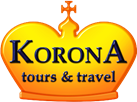The Cyprus Museum is the island’s main and largest archaeological museum, and charts the development of Cyprus’ civilisation from the Neolithic Age to the Early Byzantine period (7th century).
The museum’s collections are comprised of finds from extensive excavations from all over the island that have helped the development of Cyprus’ archaeology, as well as its research into the cultural heritage of the Mediterranean.
The collections consist of pottery, jewellery, sculpture, coins, copper objects, and other artefacts, all exhibited in chronological order in the various museum galleries. Pieces typical of Cypriot culture – and of particularly important artistic, archaeological and historical value – include the cross-shaped idol of the Chalcolithic period, Early Bronze Age pottery from Vouni, Late Bronze Age golden jewellery from Egkomi, and the 1st century BC statue of Aphrodite of Soloi.
The museum building itself is also historic, and work on it commenced in 1908 and was completed in 1924, when Cyprus was still a British colony. Several extensions were later added for the museum to become the building it is today.


Comment (0)